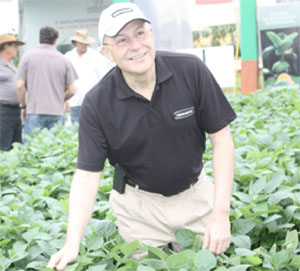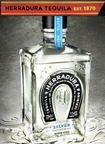
Monsanto
Awarded Prestigious World Food Prize
By FBWorld Team
When
it comes to agriculture, the World Food Prize is the equivalent
of the Oscars.
This
year, the prestigious award went the mastermind behind
Monsanto's big move into genetically modified crops. In
foodie terms, that is like a commercial blockbuster winning
best picture rather than an independent, artsy film.
Started
in 1987, the prize aims to recognize people who improve
the "quality, quantity or availability" of food
in the world. The founder of the award, Norman E. Borlaug,
won the Nobel Peace Prize in 1970 as the father of the
Green Revolution, which vastly increased grain output.
On
Wednesday the World Food Prize Foundation said the honor
and the $250,000 cash prize would be shared by Robert
T. Fraley, Monsanto's executive vice president and chief
technology officer, and two other scientists, Marc Van
Montagu of Belgium and Mary-Dell Chilton of the United
States. The foundation said the work of the three scientists,
who helped devise a way to insert foreign genes into plants,
led to the development of higher-yielding crops that can
resist insects, disease and extremes of climate.
The
prize has some public relations value for Monsanto and
other supporters of bioengineered food. But the choice
is also likely to add heat to an already intense debate
about the role biotechnology can play in combating world
hunger.
Genetically
modified crops are grown on 420 million acres by 17.3
million farmers around the world. More than 90 percent
of them are small farmers in developing countries, according
to the International Service for the Acquisition of Agri-biotech
Applications, an organization that promotes use of biotechnology.
But
the crops are shunned in many countries and by many consumers,
who say the health and environmental effects have not
been adequately studied. The crops' role in increasing
yields and helping farming adapt to climate change is
still subject to some debate. One study organized by the
World Bank and United Nations concluded in 2008 that genetically
modified crops would play only a small role in fighting
world hunger.
The
World Food Prize has been criticized in the past for favoring
industrial agriculture. The foundation that administers
the prize has received contributions from companies, including
a $5 million pledge from Monsanto in 2008.
Eric
Holt-Giménez, executive director of Food First,
a food policy research organization in Oakland, Calif.,
said the World Food Prize's "growing obsession"
with biotechnology "ignores the documented successes"
of nonindustrial methods of farming.
Kenneth
M. Quinn, the president of the World Food Prize Foundation,
defended the choice, saying that crop biotechnology had
"met the test of demonstrating it would impact millions
of people and enhance their lives." Mr. Quinn, a
former United States ambassador to Cambodia, said that
contributions had no influence on the selection of winners.
"The
view of our organization and our committee is that in
the face of controversy, you shouldn't back away from
your precepts," he said. "If you do so, you
are diminishing the prize."
The
winners of the 2013 prize were part of teams that independently
developed methods three decades ago for putting foreign
genes into the DNA of plants.
The
key was a soil microbe called Agrobacterium tumefaciens,
which can inject its own DNA into plants, causing a tumorlike
growth called crown gall disease. The researchers disabled
the tumor-causing part of the bacterium and inserted the
gene that they wanted to be carried into the plant's DNA.
FOR
THE REST OF THE STORY, CLICK HERE.
Article
courtesy of the New York Times
Written By ANDREW
POLLACK

|















